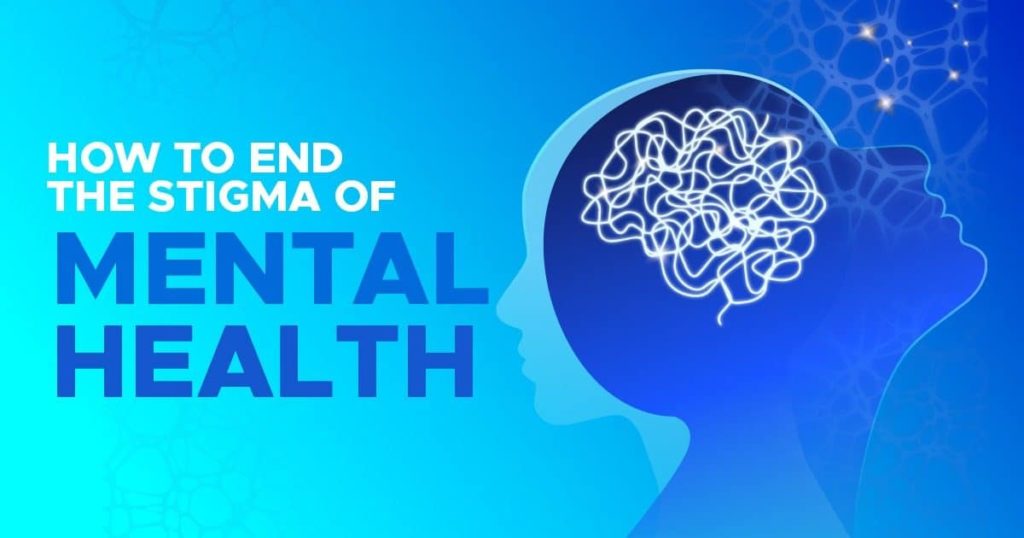Most teens and adults who have mental illness have been stigmatized for their situation at some point in time. Somebody has called them names. “A phase” or “something they can manage if they only tried” have been used to describe their symptoms. With little recourse, they have been subjected to illegal discrimination. Stigma wields this kind of sway.
People are stigmatized and feel embarrassed about what is beyond their power. Moreover, teens are less likely to seek treatment when they fear being stigmatized by their peers. Stigma is an unnecessary burden for those who already bear a great deal of suffering. Even if the stigma around mental illness has lessened in recent years, progress has remained sluggish. Let’s look at ways to help those with mental illness overcome their stigma and stop it.
What is the Mental Health Stigma?
When someone has a wrong opinion of you because of a distinctive attribute or personal trait that they believe is or is a disadvantage, you are said to be suffering from stigma (a negative stereotype). Unfortunately, negative attitudes and views about people with mental illness are all too widespread.
Discrimination can result from stigma. For instance, you may be subjected to discrimination if someone makes a snide comment about your mental disorder or treatment. The avoidance could be deliberate, such as avoiding you out of fear of your violent or hazardous tendencies, or unintentional or subtle. There’s a good chance you’ll be judging yourself.
Stigma can have the following negative consequences:
- There is an unwillingness to seek medical attention or therapy.
- Family, friends, coworkers, and others lack comprehension
- Difficulties in locating a place to live or finding work, school, or social opportunities
- Violent or threatening behavior by a bully or another person
- Mental illness therapy that is not fully covered by your health insurance
- The belief that you are doomed to fail at a given task or cannot alter your circumstances.
Steps to End the Mental Health Stigma
It is nearly usually the case that the opinions of others arise from inadequate knowledge and comprehension. Stigma can negatively impact a person’s life if they cannot accept their condition and make the necessary efforts to treat it. Here are some effective methods things you can do to end mental health stigma below:
Seek Out Medical Assistance
You must first and foremost receive treatment for your illness or encourage others to do so before anything else. Fear of being diagnosed with mental illness should not keep you or your family and friends from seeking treatment. Adequate communication is key here. A teenager’s ability to function at school and in their personal lives will suffer if they do not seek treatment. Please remember to treat yourself and those you care about with compassion and tenderness whenever you or they need medical attention. Asking for help isn’t something we do all that often. Your loved ones would appreciate your efforts if you have the guts to speak up.
There is no need to buy into the Negative Connotation of Mental Illness
For many, mental illness is seen as a show of weakness. Due to negative self-perceptions, you may mistreat others. It is possible to build good self-esteem and perspective and overcome bad judgment by seeking help, educating oneself, being nice to oneself and others, and connecting with people with a mental illness. Acceptance is crucial; learning can help them realize they aren’t alone. Finding assistance is a need.
Acquaint Yourself and Others with Knowledge
The more you know, the more powerful you are. Take the time to learn about mental illness, its symptoms, and how to treat it from credible sources. Getting the correct treatment for mental well-being begins with doing your research.
Help others understand that mental disorder is a medical condition that can be treated in the same way that physical illnesses are. To dispel some myths and misconceptions about mental illness, provide accurate information.
Partake in a Mental Health Support Group
Don’t be a hermit. No one can help a person with mental illness if they don’t tell anyone about it. Talk Therapy plays an indispensable role in helping end stigma. You can find various activities and resources from regional and national support groups. They are also educating people with mental diseases, their families, their supporters, and the communities they live in to remove the stigma and empower those who have mental illness.
Start by checking out the National Alliance on Mental Illness (NAMI). Contact the county government to find out what programs are available in your area. In many cases, people with mental illnesses and those who care about them can find support groups and other online resources.
Avoid Shame and Embrace Empowerment
Do not allow anybody to influence your views if you are in a difficult situation. Honor the stories and difficulties of individuals seeking assistance by offering encouragement to those in need. Be open and honest with those you interact with. You may show others who you truly are by revealing your abilities, talents, and ambitions. Encourage those who are struggling to do likewise. Your actions and demeanor can significantly impact people’s perceptions of your mental illness and your treatment. It is important to treat yourself and others with respect during this process. Time and effort are required to accept oneself.
Speak out Against Mental Health Stigma and Discrimination
Confidently share your thoughts and ideas in any situation, whether in front of a small circle of friends or a large number of people. As a means of encouraging change, educate others about mental health issues in a courteous manner. Remind individuals that they wouldn’t make fun of someone with heart disease, diabetes, or cancer if they were in their position.
A person’s stigma and prejudice will only be exacerbated if they are made fun of because of their mental illness. Not only can speaking up help educate the masses and remove the stigma associated with mental illness, but it may also inspire others dealing with similar issues to seek assistance. Remember to take care of yourself as you go through this!
Mental Health Treatment for Teens in Southern California
This mental health stigma leaves many people feeling alone and lost as if they’re the only ones struggling. The reality is that mental health conditions are prevalent, affecting 1 in 5 adults in the United States each year. mental health conditions don’t discriminate, affecting people of all ages, races, and backgrounds. mental health conditions are also incredibly complex, with each individual experiencing symptoms differently.
For teens, getting mental health treatment when they need it is vital. Mental health treatment can help teens to understand their condition, develop coping mechanisms, and eventually recover. Mental health treatment can be life-changing, and it often leads to positive outcomes like increased self-esteem, better school performance, and improved relationships. By getting the mental health help they need, they can help to end the mental health stigma. To learn more about mental health treatment options available to teens in southern California, contact Hillside Horizon for Teens at 855-746-8378.




